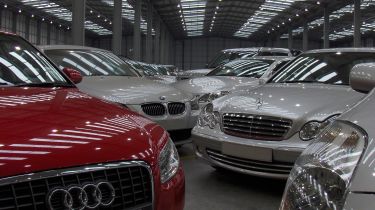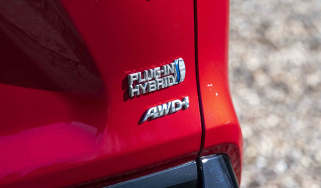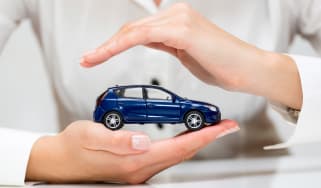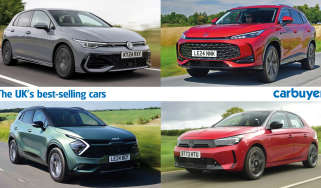How to buy a used car: top tips
Buying a used car isn’t always straightforward, but these top tips will help you avoid the common pitfalls

Knowing how to buy a used car can save you both time and money, and help you find exactly the right model for you. While most people don’t experience any hitches when shopping on the used market, some people are put off by the risk of ending up with a car that’s previously been stolen, written off, or one that develops problems down the road.
By following the steps below, not only will you be equipped to spot a suspicious sale, but you’ll also know exactly what car you should be looking for and how much you should be paying. We also have a complete guide to buying a new car if you’d prefer not to shop second-hand.
1. Establish a budget
This applies whether you’re shopping for a new or used car – setting a budget for your car purchase should be your first port of call. Once this is established, you’ll be able to narrow down your search to find the right car for you.
When establishing a budget, you’ll need to factor in more than just the purchase price of the car. Extras like insurance, tax and fuel costs all add up and can make a seemingly affordable car become very expensive. Work out how much you have to spend each month, factoring in these additional running costs. Depreciation is a factor to consider, too, although this is typically more severe when buying a new car.
It’s also a good idea to decide how you’re going to pay for the car. Today, buying a car using finance is a popular method for used cars as well as new ones, although you’ll usually be paying more in the long run compared to paying in cash. If you’re considering buying using finance, make sure to read our guide to PCP finance for used cars and used car leasing.
2. Know what you’re looking for
Of course, it makes sense to have an idea of the type of car you’re after before you set off on your used car buying journey. Our car choosing checklist will help you narrow down your shortlist and figure out whether a petrol, diesel, hybrid or electric car is best for you. We have dedicated guides to buying a used hybrid car and buying a used electric car to help you out.
When searching for a used car online, there are terms to be aware of, including ‘pre-registered car’ and ‘Cat S or Cat N car’. The former is essentially a brand-new car that has already been registered to the dealership before being sold to a customer. Cat S and Cat N cars have previously been written-off by an insurer, so should be investigated with caution.
3. Know where to buy a used car
Unlike buying a new car, where it’s common to just walk into your local dealership, you have more options when it comes to buying a used car. Knowing where to buy a used car is important, as different sellers offer varying levels of aftersale support, different warranties, and can offer their cars at wildly different prices.
Used car dealerships are a well-established option, but the internet has allowed private sale sites and online car brokers to rapidly grow in size and popularity. Our dedicated guides to used car brokers, used car auctions and car dealerships will clue you up on the differences and best practices.
4. Know what to look for when buying a used car
Buying a used car inherently carries more risk than buying a new one, as it’s impossible to know exactly how the car was looked after prior to you. While that can sound off-putting, knowing exactly what to look for when buying a used car will help you spot any obvious defects and feel confident in your purchase. We’ve put together a handy used car buying checklist that covers all of the basics that you should keep an eye out for.
As well as giving the car a thorough visual inspection, it’s vital to ask the right questions when buying a used car. Asking the seller about the car’s service history, previous owners, mechanical problems and accident history may reveal information they would’ve been reluctant to tell you without a prompt. Any information is good information when buying a used car, and it’ll help you decide whether to hand over your cash or to walk away.
5. Make sure you’re getting a fair price
Different sellers will have different ideas for what constitutes a ‘fair price’, but you should always have a rough idea of a used car’s value before negotiating. Our guide to how to value your car covers the topic in more detail, but there are some key steps that we always recommend.
Visit an online used car classifieds site to get an idea of what similar cars are selling for. You should be able to input the exact make and model that you’re looking at and compare its price to those listed online. Beware that used car prices will vary based on who the seller is – a dealership will typically price its cars higher than a private seller, but the latter usually carries more risk.
Negotiating is standard practice when it comes to buying a used car, so read our top tips on how to haggle effectively.
6. Beware of common scams
Unfortunately, not every used car seller is honest. It’s possible that the car you’re looking at has a hidden history that the seller is not being upfront about, or that the car is stolen or cloned. You can avoid common car-buying scams by reading our dedicated guide.
As an added precaution, we always recommend carrying out an HPI check when buying a used car. They’re fairly inexpensive, often costing around £20, and provide information about the car’s history, including whether it’s been recorded as having been involved in an accident. It should also highlight whether the car has any outstanding finance, or whether it has been repossessed.
When it comes to viewing the car, always ensure the seller's name and address match what's on the car's paperwork, and always meet them at either a location you are comfortable with or at their home address. If meeting at a public place ask the seller for a form of ID that matches the address on the logbook for extra peace of mind.
By following the steps outlined above, shopping around and trusting your instincts, it should always be possible to get a great deal on a used car that won't cause you headaches down the line. But for ultimate peace of mind, you can also consider the 'approved used' schemes run by many manufacturers. These usually consist of relatively newer used cars (from a few months to a few years old) being offered for sale through the manufacturer's franchised dealerships.
The exact benefits vary from brand to brand, but cars like this will have had all the checks described above carried out and frequently undergo a thorough inspection before being put on sale. They're often offered with warranties and breakdown cover and can sometimes be exchanged for another car of equivalent value if you're not fully satisfied within a certain period of time. Although these aren't the cheapest used cars you'll find, it can be worth paying a little extra in order to minimise the risk of issues in the long run.
More used car buying advice
- What car should I buy?
- How to budget
- PCP finance for used cars
- Used car leasing
- Buying a used hybrid car
- Buying a used electric car
- Pre-registered cars
- Cat S and Cat N cars
- Where to buy a used car
- Used car brokers
- Used car auctions
- Car dealerships
- Used car buying checklist
- Questions to ask when buying a used car
- How to value your car
- How to negotiate a car purchase
- Car-buying scams
- What is an HPI check?
- What is a repossessed car?
Recommended

Petrol and diesel car ban relaxed with hybrids permitted beyond 2030

Classic car tax exemption: which historic vehicles qualify?

Car warranties: guide to new and used car warranties
Most Popular

New Smart #5 Brabus is a 637bhp far cry from the brand’s city car past

Best car leasing deals 2025: this week’s top PCH offers
Tips & advice

Car dashboard warning lights: what does each symbol mean?

Electric car charging stations: public networks, charger types, apps and maps







